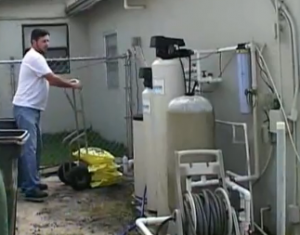 Drilling a well for water system is among one of the concerns faced by a new homeowner and home contractors. This is because there are several considerations needed to ensure that you can have a good water quality for your home.
Drilling a well for water system is among one of the concerns faced by a new homeowner and home contractors. This is because there are several considerations needed to ensure that you can have a good water quality for your home.
Preceding drilling a well, it is recommended that the water from the ground source be tested first to assure quality and safety of water. Aside from this, you also will want to check the regulation of your area regarding the ownership of a private well.
Deciding on the Area for Water Well
The productivity and safety of your well will rely upon your choice of its location. When examining different sites, you have to make certain that the possibility of having a future development plan in your property is considered. This is because once the well is drilled; you can longer make any development on that particular site.
Pollutants often enter the well at the top of the casing or around it from the outside. Discharge and other impurities could seep into the upper ground surface layers to the water level or aquifers.
The subsequent things can help to eliminate the possible water contamination in your well.
The well should reachable for monitoring, testing, cleaning, repair and maintenance.
The well location should be up-slope to keep possible pollutants including septic tanks, from seeping into the aquifer.
The surrounding ground of the well is also sloped away to avert surface water runoff
The well should not be situated in a well pit.
Filtering Well Water
Well water, unlike city and municipal water, is drawn direct from the ground and does not traverse any filter system before it may be consumed. Filters are not just used for removing viruses and bacteria from your well water, but also to trap the silts which could be present in the water and pose a serious problem in your water source. When water is unfiltered, it can bring about bad smell and taste.
There are several water purification systems for well waters; however, if you want to get best results choose those that have multiple filters for example carbon filters. The system could be installed in many different locations like at the pump for instance, under the sink, at the entry point of water on your property, or in countertop. Just a little bit of research can help you in finding the right filtration system for your well water.
Anyone who has a well for his water supply should have a filtering system installed. This is to make sure that no harmful pollutant will infect the liquid. Water from well may contain pathogens that can trigger serious ailments.
You can have your well water periodically tested or just install a reliable filtration system to eliminate the harmful particles without removing the important minerals needed by the body. Installing water is a more economical option than having the water tested every now and then.
Benefits of Well Water
Health Benefits – well water maybe filtered without the necessity of chemicals like chlorine. This will provide the health benefits without the added chemicals that can possibly harm the body.
Consumption and Taste – water from well is known to have softer taste compared to the city and municipal water. Unlike the water treated with chemicals, well water is softened naturally. Soft water from well can amplify its refreshing taste.
Environment friendly – the filtration systems installed for well water are a lot more eco-friendly compared to the water treatment plants where the water supply for urban areas hail from. Using well water reduces the amount of pollution brought on by chemicals and pollutants from treatment plants.
Financial Benefits – installing water well for your private use can make you eligible for various tax breaks, besides being freed from water usage feed. Installing a well is also a long-term investment unlike when you depend on city water service wherein you will receive a monthly bill.
